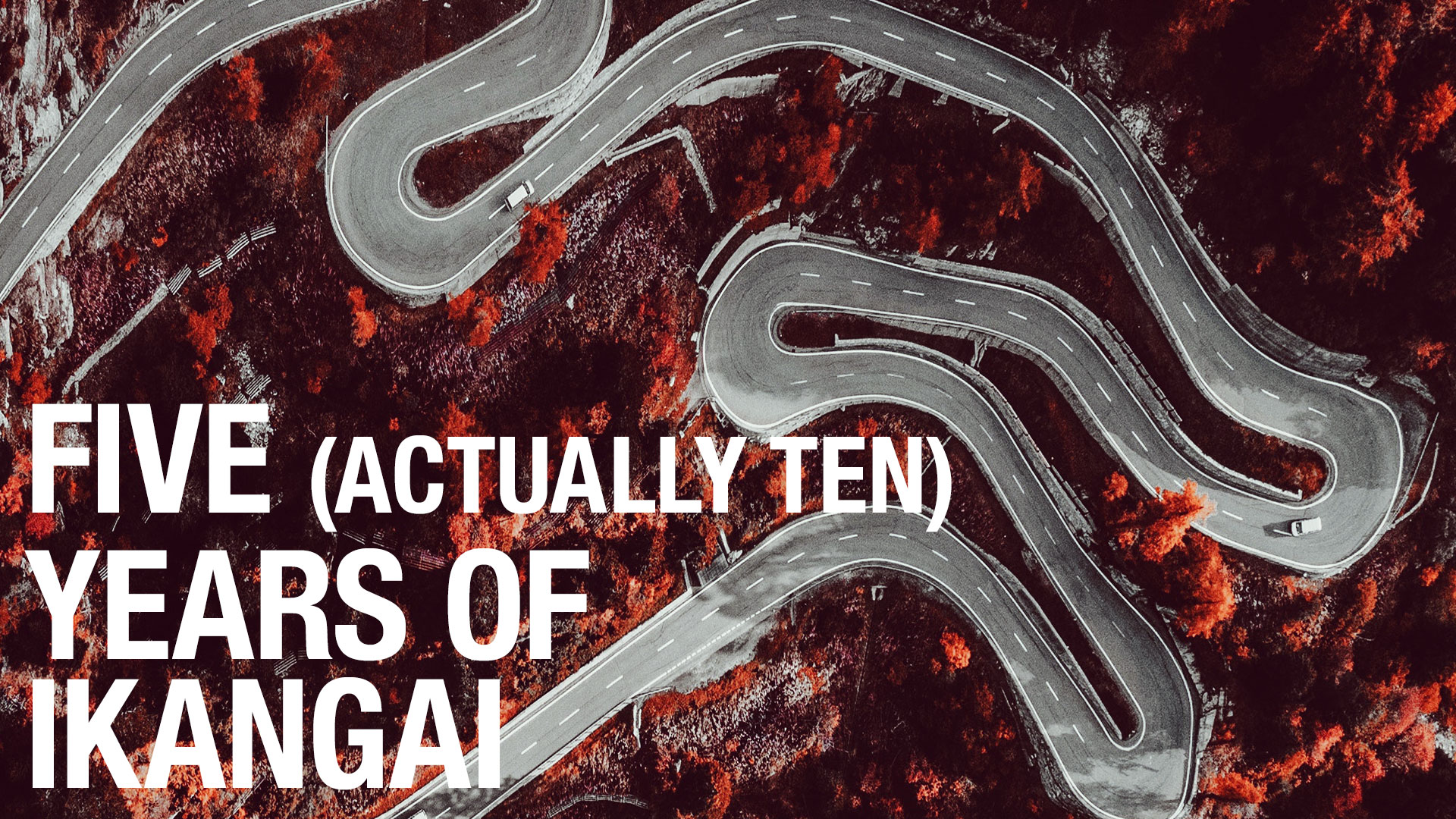Christian and I founded IKANGAI, which became IKANGAI Gmbh in 2014, 10 years ago in 2009. It has been (and still is) a wild ride with a lot of ups and downs. Our anniversary made us think of what we have accomplished in the last 10 years and what (sometimes very hard) lessons we have learned so far. There are dozens of them, but they boil down nicely to three main ones that I’d like to paraphrase as follows:
1. Never give up. Never surrender.
2. Be water my friend.
3. We chose to the do the other thing. Not because it’s easy. Because it’s hard.
Never give up. Never surrender.
We faced our toughest challenge in 2016. There were huge internal changes in the shareholder structure and lots of discussions about the direction of the company and the qonnect platform. We considered all kind of options. Luckily for us, a deal with between the investors leaving the company and our (now) lead investor was struck. This quieted things down and gave us the needed wiggle room to bootstrap an European project (SOLOMON). This helped us to further extend and refine the qonnect platform. While it was certainly lucky that we got the funding for the project, we had to be there to make it happen. Put differently: because we didn’t surrender and gave up (which was an option that was on the table) we were around long enough to make this happen. As long as we saw the slightest possibility to create an opportunity that we can exploit, we kept on trying.
Be water my friend.
The second lesson is about flexibility. We started the qonnect platform with the aim at selling a direct connection of businesses to customers. This put us into a position that can be described as chicken-egg problem. Users will download your app only then if there are enough interesting businesses on it. Businesses will sign up only if there are enough users to reach. We tackeld this problem with the help of an existing app of ours that already had a six-figure user base. While keeping the base functionality, we turned the app into the qonnect app and kept the user base. This made it for businesses more attractive to sign up on our platform.
However, after initial sucess, we noted that it became more and more difficult to get businesses to sign up to our platform. Since the per customer revenue was considerable small, we needed lots of new customers to keep it running. In smaller marktes you simply run out of businsesses that you can reach with a limited marketing and sales budget
To overcome this, we were forced to diversify our platform and offer a broader portfolio. We started to build white label apps for customers and integrated additional functionality to the platform. This is risky, since there’s always the possibility that your customers lead you astray with their requirements. You might end up building functions that only one customers needs. Also, the lead times are much longer and there are fewer companies that need (and are willing to afford) white label apps.
We chose to the do the other thing.
The third lesson is one of personality. Christian and I certainly have an apitutde to create things (Christian is an architect and I’m a computer scientist). Building and especially growing a company is definitily “doing the other thing not because it’s easy, because it’s hard”. For us, doing difficult things motivates us. There is a satisfaction when you realize that you overcome all those hurdles and in the process created jobs for others.
At the same time, it can be lonley, since your friends typically have no idea what it means to build a company. There are so many things that happen only to people that do this. Freelancers experience some of this, but are for example not directly responsible for other people’s jobs. They do not have investors. And so on.
I’d like to close with a honorable mention: no business plan survives the contact with then enemy, i.e. the market. We’ve written a couple of business plans over past years. What we got right, were the costs for the development. What we didn’t get quite right was the money that we would make. Like so many companies, we did naive math. We simply calculated the potential revenue like this: x% of companies in the sector z are willing to spend 30.000€ or more for mobile marketing and mobile apps. This gives us a potential market size of insert-huge-number-here-€. We target y% of these companies in sector z which gives us not-so-huge-but-substantial-number-€ revenue. This just never happend for us: today we have companies from various business sectors like retail, sports, fitness, culture and digital services and we are looking into municipalities and railways. What was considered a weakness of our qonnect platform is now our strength. qonnect is quite flexible and can be used in various business sectors. Actually, we mentioned this flexibilty in our business plans. It earned us lots of critique and we often heard that we need to focus on one sector. We did this on paper, but the reality turned out quite different.
As a company we are doing quite good now: we managed to double our revenue every year for the last three years. We are on track to continue this pace for this year. Hopefully, we can keep this pace as long as possbile for the next years. I wonder already what I’ll write when we have the 20 year anniversary of IKANGAI.
